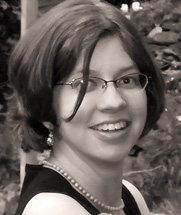Dual-career programs have become widely seen as vital in faculty recruiting. To get one half of a faculty couple, a college needs to offer a good opportunity to the spouse, the theory goes. Colleges do this in a variety of ways, sometimes going so far as to authorize new lines in some departments so that both halves of a couple have a reason to move. But other institutions do relatively little to help.

Julie Kmec, a professor of sociology at Washington State University, and Hong Zhang, a doctoral student there, used survey data from faculty couples at seven universities to examine dual-career issues in academe.
Much of the discussion has assumed that these efforts are important in recruiting both male and female academics. The new WSU research previewed Sunday at the annual meeting of the American Sociological Association suggests that dual career may be especially important in recruiting female professors with husbands who are also in academe. These women, the study found, are significantly more likely to turn down good jobs at universities if their spouses aren’t offered an appropriate job than are male professors whose female partners aren’t offered a good job. (The study examined only male-female dual-career couples, as there were not enough same-sex partners in the pool.)